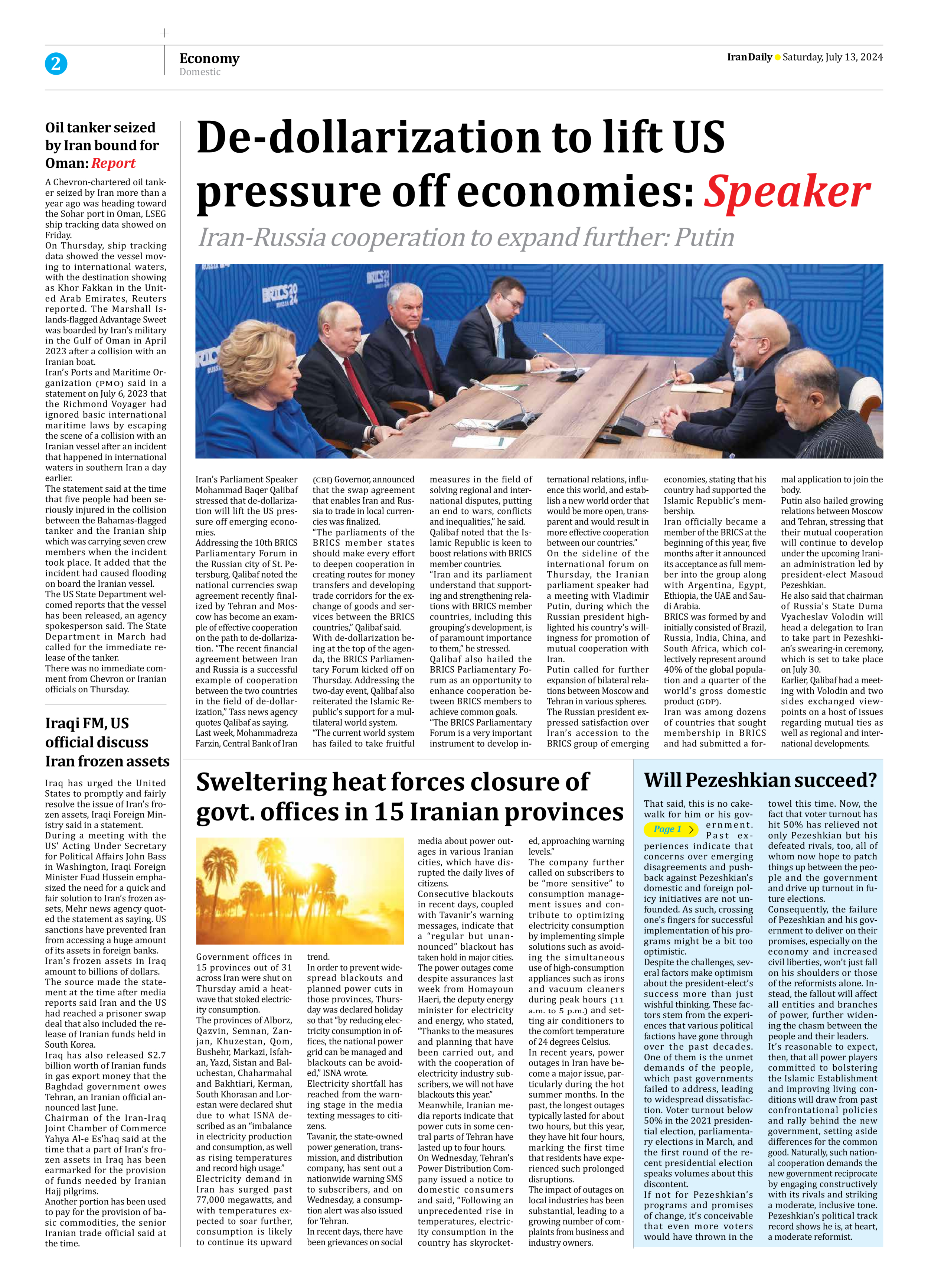
Sweltering heat forces closure of govt. offices in 15 Iranian provinces
Government offices in 15 provinces out of 31 across Iran were shut on Thursday amid a heatwave that stoked electricity consumption.
The provinces of Alborz, Qazvin, Semnan, Zanjan, Khuzestan, Qom, Bushehr, Markazi, Isfahan, Yazd, Sistan and Baluchestan, Chaharmahal and Bakhtiari, Kerman, South Khorasan and Lorestan were declared shut due to what ISNA described as an “imbalance in electricity production and consumption, as well as rising temperatures and record high usage.”
Electricity demand in Iran has surged past 77,000 megawatts, and with temperatures expected to soar further, consumption is likely to continue its upward trend.
In order to prevent widespread blackouts and planned power cuts in those provinces, Thursday was declared holiday so that “by reducing electricity consumption in offices, the national power grid can be managed and blackouts can be avoided,” ISNA wrote.
Electricity shortfall has reached from the warning stage in the media texting messages to citizens.
Tavanir, the state-owned power generation, transmission, and distribution company, has sent out a nationwide warning SMS to subscribers, and on Wednesday, a consumption alert was also issued for Tehran.
In recent days, there have been grievances on social media about power outages in various Iranian cities, which have disrupted the daily lives of citizens.
Consecutive blackouts in recent days, coupled with Tavanir’s warning messages, indicate that a “regular but unannounced” blackout has taken hold in major cities.
The power outages come despite assurances last week from Homayoun Haeri, the deputy energy minister for electricity and energy, who stated, “Thanks to the measures and planning that have been carried out, and with the cooperation of electricity industry subscribers, we will not have blackouts this year.”
Meanwhile, Iranian media reports indicate that power cuts in some central parts of Tehran have lasted up to four hours.
On Wednesday, Tehran’s Power Distribution Company issued a notice to domestic consumers and said, “Following an unprecedented rise in temperatures, electricity consumption in the country has skyrocketed, approaching warning levels.”
The company further called on subscribers to be “more sensitive” to consumption management issues and contribute to optimizing electricity consumption by implementing simple solutions such as avoiding the simultaneous use of high-consumption appliances such as irons and vacuum cleaners during peak hours (11 a.m. to 5 p.m.) and setting air conditioners to the comfort temperature of 24 degrees Celsius.
In recent years, power outages in Iran have become a major issue, particularly during the hot summer months. In the past, the longest outages typically lasted for about two hours, but this year, they have hit four hours, marking the first time that residents have experienced such prolonged disruptions.
The impact of outages on local industries has been substantial, leading to a growing number of complaints from business and industry owners.







